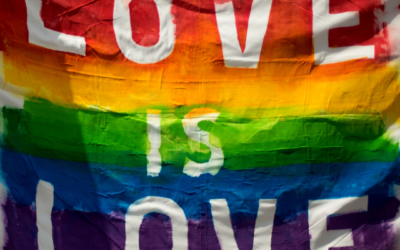If you haven’t seen Boyhood in theaters yet, you should make an effort to. A true first of its kind, the film was shot over the course of 12 years, and should be added to the syllabi of Film History courses across America. As suggested by both the title and the poster image, a boy, Mason Jr. (Ellar Coltrane) lying in the grass, watching the clouds and time pass by, Boyhood is about his growing up and transition into manhood. The film is a series of moments from childhood, prepubescence, the epoch of teenage angst, until it’s time for the boy to leave his mother’s nest. We watch as Mason his sister Samantha (Lorelei Linklater), his mom Olivia (Patricia Arquette) and his dad Mason Sr. all mature and change from monumental junctures in their lives.
My first impression of Boyhood was that its familiarity. Richard Linklater has nailed the details of time: memorable songs like Yellow by Coldplay, fads of bad patchy blue jeans or long emo-punk black bangs, those popular shelves that looked like ladders, common hors d’oeuvres from Costco, Chevy Tahoes and Volvo station wagons, Play Stations, Nintendos, Game Boys, those old apple computers that had the colorful, transparent back, and the list goes on. The millennial generation’s dialogue is also completely reminiscent. I felt like I was being taken back to my childhood by the ghost of Christmas past, and also irritating my siblings by singing and dancing N’Sync’s, Bye Bye Bye. Bands like Cat Power, The Flaming Lips, Gnarls Barkley, Vampire Weekend, Wilco, The Black Keys, Arcade Fire serve to segway one year to the next. As for the transition between stages for the cast, according to Patricia Arquette, the actors came together for three or four days out of each year to film Boyhood.
Beyond mastering cultural references– my favorite of which is when Mason drives to college and the letters left on his Toyota truck are Y and O, like Andy’s truck when he goes off to college in Toy Story 3— Linklater has critiqued social norms within American culture, what it means to be a family and manhood. Matt Zoller Seitz, writer for RogerEbert.com puts it best, “The film’s title and choice of protagonist have been criticized (gently but firmly) for unthinkingly confirming that heterosexual men are at the center of the universe. But this reading ignores the movie’s constant (if empathetic) critique of American manhood, or what passes for American manhood: an entitled mental state that is really just boyhood with money and a driver’s license.”
This money and a car “manhood” is a summary of Mason, Sr. at the beginning of the film. You think at first he’s just an absent father who gets to take his kids out to the zoo and for ice cream, leaving their mother to deal with routine and unruly children while he gets to have all the fun. This is partly true, but Mason, Sr. also matures along the course of Mason, Jr.’s childhood. He gives up his job working on a boat in Alaska, takes on a position at an insurance agency, gets re-married and trades in his GTO for a mini-van. Getting rid of the GTO irritates Mason, Jr. because he recalls his dad telling him he could have the car one day. I like his father’s response, “What about your sister?” He doesn’t jump to a primogeniture prescription of entitling his first born son.
The parents in Boyhood are brilliant. Not only are the performances by Patricia Arquette and Ethan Hawke spot on, but the characters’ struggles are real. The mother, a strong-willed woman, finishes her college degree and later becomes a professor, but in attempts to “complete” her family she marries the wrong men. Mason, Jr. reminds her, “We already have a family.” It takes her another failed marriage to let this message sink in, but she finds her way as the rest of the family does. Mason, Sr. evolves into a more present father. He takes Mason camping, teaching him to put out the campfire by peeing on it, and he gives him lessons about sex– don’t do what we your Mom and I did, having kids so young– and life, “We’re all just wingin’ it,” he advises Mason, Jr.
Young Mason is wingin’ it more times than others, but by the end of it all– when he’s sitting with new college friends, contemplating whether “carpe diem” means seize the moment, or that the moment is seizing us– he’s doing alright. After his parents splitting up, some awkward stages of growing up and his first heartbreak, we are left to believe that Mason will do just fine.




